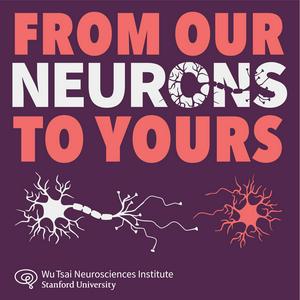Today, we are speaking with the one and only Robert Sapolsky, a Stanford neurobiologist, a MacArthur "Genius", and best-selling author of books exploring the nature of stress, social behavior, and — as he puts it — "the biology of the human predicament." In his latest book, Determined, Sapolsky assertively lays out his vision of a world without free will — a world where as much as we feel like we're making decisions, the reality is that our choices are completely determined by biological and environmental factors outside of our control.Before we get into it, it's worth saying that where this is heading, the reason to care about this question is that Sapolsky's argument has profound moral implications for our understanding of justice, personal responsibility, and whether any of us deserve to be judged or praised for our actions.Mentioned on the ShowDetermined: A Science of Life Without Free Will (Sapolsky, 2023)Behave: The Biology of Humans at Our Best and Worst (Sapolsky, 2018 )A Primate's Memoir: A Neuroscientist's Unconventional Life Among the Baboons (Sapolsky, 2002)Free Agents: How Evolution Gave Us Free Will (Mitchell, 2023) Sapolsky / Mitchell Debates – Part 1 (2023), Part 2 (2024)Related EpisodesIs addiction a disease? | Keith HumphreysBrain stimulation & "psychiatry 3.0" | Nolan WilliamsHow we understand each other | Laura GwilliamsGet in touchWe're doing some listener research and we want to hear from your neurons! Email us at at
[email protected] if you'd be willing to help out, and we'll be in touch with some follow-up questions.Episode CreditsThis episode was produced by Michael Osborne at 14th Street Studios, with production assistance by Morgan Honaker. Our logo is by Aimee Garza. The show is hosted by Nicholas Weiler at Stanford's Wu Tsai Neurosciences Institute. Send us a text!Thanks for listening! If you're enjoying our show, please take a moment to give us a review on your podcast app of choice and share this episode with your friends. That's how we grow as a show and bring the stories of the frontiers of neuroscience to a wider audience. Learn more about the Wu Tsai Neurosciences Institute at Stanford and follow us on Twitter, Facebook, and LinkedIn.

